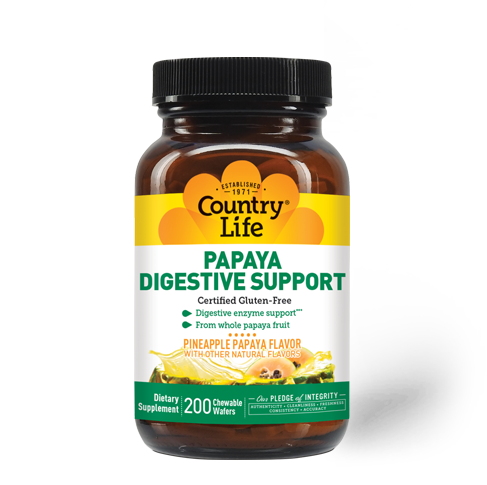How a Gut Health Supplement Can Help Reduce Bloating and Improve Comfort
Discover the Key to Digestion and Immunity With Intestine Wellness Assistance

Understanding Digestive Tract Health
Recognizing digestive tract wellness is important for total wellness, as it plays a substantial role in digestion, resistance, and even mental health and wellness. The intestine, comprising the intestinal system, is in charge of damaging down food, soaking up nutrients, and expelling waste. A balanced digestive tract setting ensures effective food digestion, permitting the body to utilize nutrients efficiently.
In addition, intestine health dramatically impacts the body immune system. The intestine houses a substantial portion of the body's immune cells, and a healthy digestive tract can assist repel microorganisms and minimize swelling. Disturbances in gut health can result in an overactive immune action, possibly adding to autoimmune problems and allergic reactions.
In addition, the intestine is often referred to as the "second mind" as a result of the gut-brain axis, an intricate interaction network connecting the intestine and the mind. This link influences mood, cognition, and emotional well-being. Problems such as dysbiosis, characterized by an imbalance in gut bacteria, have actually been connected with psychological health and wellness conditions, including anxiety and clinical depression.
The Intestine Microbiome Explained

The digestive tract microbiome, a diverse area of bacteria residing in the gastrointestinal system, plays an essential role in maintaining digestive system health and wellness and overall health. Making up trillions of bacteria, infections, fungi, and other germs, this complicated ecosystem help in the digestion of food, the synthesis of essential nutrients, and the guideline of metabolic processes.
Each person's digestive tract microbiome is unique, affected by factors such as diet regimen, way of life, genes, and environmental direct exposures. A balanced microbiome sustains optimal food digestion by breaking down facility carbohydrates, creating short-chain fatty acids, and assisting in the absorption of nutrients. Conversely, an inequality, frequently described as dysbiosis, can result in digestive system disorders, consisting of short-tempered bowel disorder (IBS) and inflammatory bowel disease (IBD)
Research has shown that a varied microbiome is connected with better health and wellness outcomes, highlighting the relevance of dietary options in supporting these microorganisms. Foods rich in fiber, probiotics, and prebiotics, such as fruits, veggies, and fermented items, can promote a healthy microbiome. Recognizing the gut microbiome is vital for creating targeted interventions aimed at enhancing digestive system health and avoiding stomach conditions.

Link In Between Digestion and Resistance
A robust link exists in between digestion and resistance, highlighting the essential duty of the digestive tract in keeping total wellness. The gastrointestinal system is home to trillions of microbes that form the digestive tract microbiome, which significantly influences both immune feedbacks and gastrointestinal procedures. This facility ecosystem aids in damaging down food, soaking up nutrients, and providing necessary metabolites that sustain immune feature.
When digestion is effective, the digestive tract obstacle remains intact, avoiding dangerous virus from entering the bloodstream (gut health supplement). Conversely, bad food digestion can cause an inequality in the microbiome, resulting in dysbiosis, which has been linked to various health issues, including inflammatory conditions and autoimmune illness. In addition, about 70% of the body immune system stays in the gut-associated lymphoid cells (GALT), which connects very closely with the intestine microbiome. This interaction makes sure that the immune system can efficiently compare advantageous and hazardous substances.
Tips for Supporting Gut Wellness
Supporting intestine health and wellness is vital for keeping both gastrointestinal performance and a well-functioning immune system. To cultivate ideal intestine health and wellness, take into consideration integrating numerous useful approaches into your day-to-day routine.
First, focus on hydration. Consuming alcohol sufficient water sustains digestion and assists keep the mucosal lining of the intestinal tracts. Additionally, routine physical task can enhance digestive tract mobility and promote a diverse microbiome.
Conscious eating techniques are likewise crucial. Chewing food completely and consuming gradually can aid digestion and protect against overeating, which may worry the intestine. Furthermore, handling stress and anxiety via techniques such as meditation, yoga exercise, or deep-breathing workouts can favorably affect gut health and wellness, as anxiety is recognized to disrupt gastrointestinal processes.
Incorporating prebiotics and probiotics into your regimen is another effective approach. While specific foods will be discussed later, understanding the importance of these components is crucial. Prebiotics act as food for advantageous gut bacteria, while probiotics present real-time valuable microorganisms.
Last but not least, prevent extreme use of antibiotics, as they can disrupt the equilibrium of digestive tract plants. By following these tips, you can significantly add to the upkeep of a healthy gut, which is crucial for total health and wellness you could try here and vitality.
Foods That Promote Intestine Health

Fermented foods, such as yogurt, kefir, sauerkraut, and kimchi, are abundant in probiotics, which are beneficial bacteria that support intestine flora and boost food digestion. These foods can help recover balance in the digestive tract, especially after antibiotic use or digestive disruptions.
Along with fermented choices, prebiotic foods, such as garlic, onions, asparagus, and bananas, offer as nourishment for these probiotics, promoting their development and task. These soluble fibers sustain gut mobility and can relieve problems like irregular bowel movements.
In addition, including high-fiber foods, including entire grains, legumes, fruits, and veggies, is vital for keeping a healthy digestive tract. Fiber aids in routine defecation and assists stop digestive system problems.
Lastly, omega-3 fatty acids located in fatty fish, flaxseeds, and walnuts have anti-inflammatory properties that can further support intestine health. Stressing these foods in your diet can result in a robust digestive system and boosted immune feature.
Conclusion
In conclusion, focusing on gut health and wellness is essential for enhancing digestion and boosting resistance. A well balanced intestine microbiome, influenced by nutritional options and lifestyle factors, plays an important role in nutrient absorption and inflammation decrease.
Comprehending intestine wellness is why not check here crucial for total well-being, as it plays a considerable function in food digestion, immunity, and even mental wellness. The digestive tract houses a substantial section of the body's immune cells, and a healthy and balanced gut can help fend off microorganisms and minimize swelling.Furthermore, the intestine is commonly referred to as the "2nd mind" due to the gut-brain axis, a complicated interaction network connecting the intestine and the mind.A robust connection exists between digestion and immunity, highlighting the essential role of the gut in you could check here maintaining total health and wellness.In conclusion, prioritizing intestine health is necessary for enhancing food digestion and improving immunity.